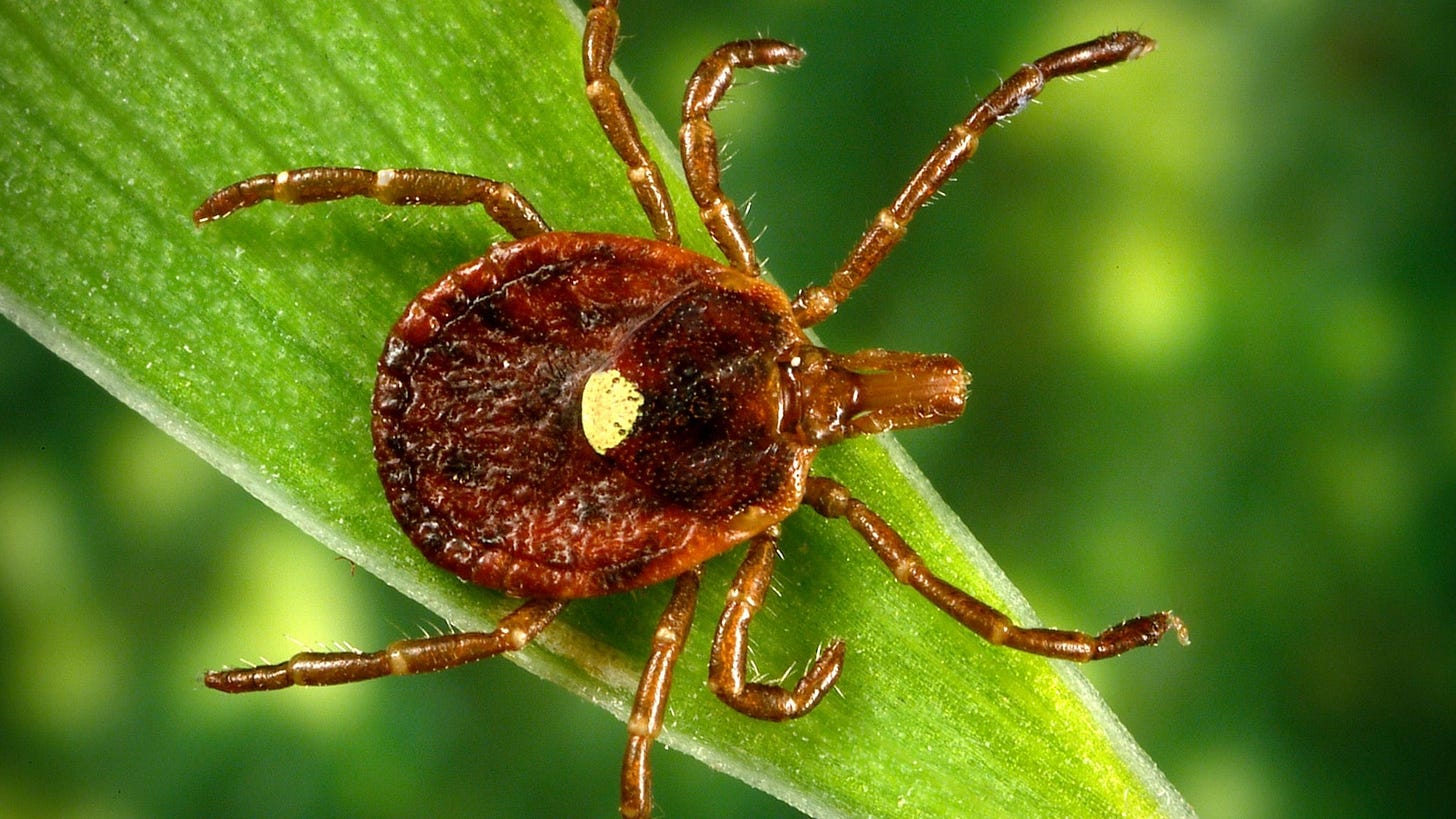Essay: Some Totally Unconnected Facts
About tickborne meat allergies
“Up to TEN MILLION Americans may suffer from rare Alpha-gal syndrome, which cause sufferers to develop an allergy to meat:” A Daily Mail headline from May 2022. The piece explains: “Alpha-gal Syndrome is normally sparked by bites from the lone star tick—identified by the white spot on its back—which lives in wooded areas across the eastern United States. But bites from other ticks may also cause it.” The lone-star tick’s saliva contains molecules that are similar to proteins in red meat, which means that when the tick bites you, the body’s immune response may also sensitise it to meat. Although less than a million cases have been diagnosed in the US, the Mail notes that a recent article in the journal Frontiers in Cellular and Infection Microbiology estimates that three percent of the population may have it. Many people simply don’t know they have the allergy, because there’s often a delay—as much as 12 hours—between eating red meat and developing symptoms, which means people don’t make the connection. “Symptoms of the condition include hives or an itchy rash, nausea and swelling of the lips, throat, tongue or eyelids,” the Mail adds. In rare cases, death can follow from eating red meat. Sufferers can still eat chicken and fish, however. The US CDC recommends staying away from “grassy, bushy or wooded areas where the insects may lurk,” and checking your body thoroughly for ticks after being outside in such areas. The condition was first discovered in 2001, by mistake, when a university professor was working on a monoclonal antibody drug. The most famous (known) sufferer is the author John Grisham.
Speaking at the 2016 World Science Festival—a.k.a “the Davos of Science”—S. Matthew Liao, a bioethicist who has held positions at Oxford, Johns Hopkins, Georgetown and Princeton, suggested that the “problem” of people eating too much meat could be “cured” by making people allergic to it. “I, for example, have a milk intolerance, and some people are intolerant to crayfish, and so possibly we could use human engineering to make it so that we’re intolerant to certain kinds of meat, to certain kinds of bovine proteins,” he said, before noting approvingly that such an intolerance already exists in nature, as a result of a bite from the lone-star tick. Liao went on to suggest other ways to save the planet, including shrinking people through genetic engineering. Liao claimed a reduction of just 15 centimetres in height could reduce an individual adult’s carbon footprint by 25%. Liao had already made these suggestions, and others, in a 2012 research paper that was picked up by The Atlantic. Liao is one of a number of experts on “biohacking” the human genome: engineering it to produce desirable traits. He has worked closely with the World Economic Forum.




